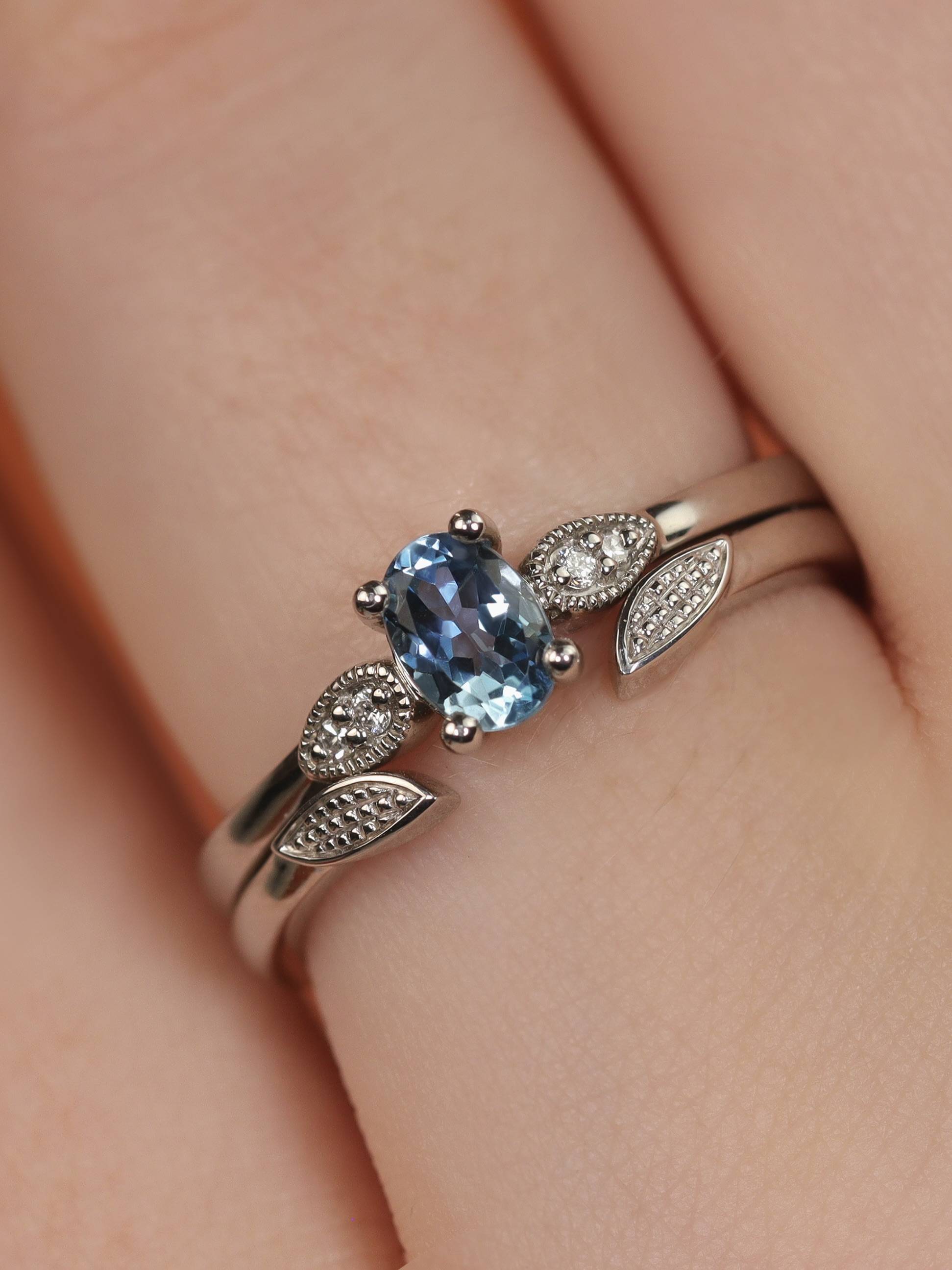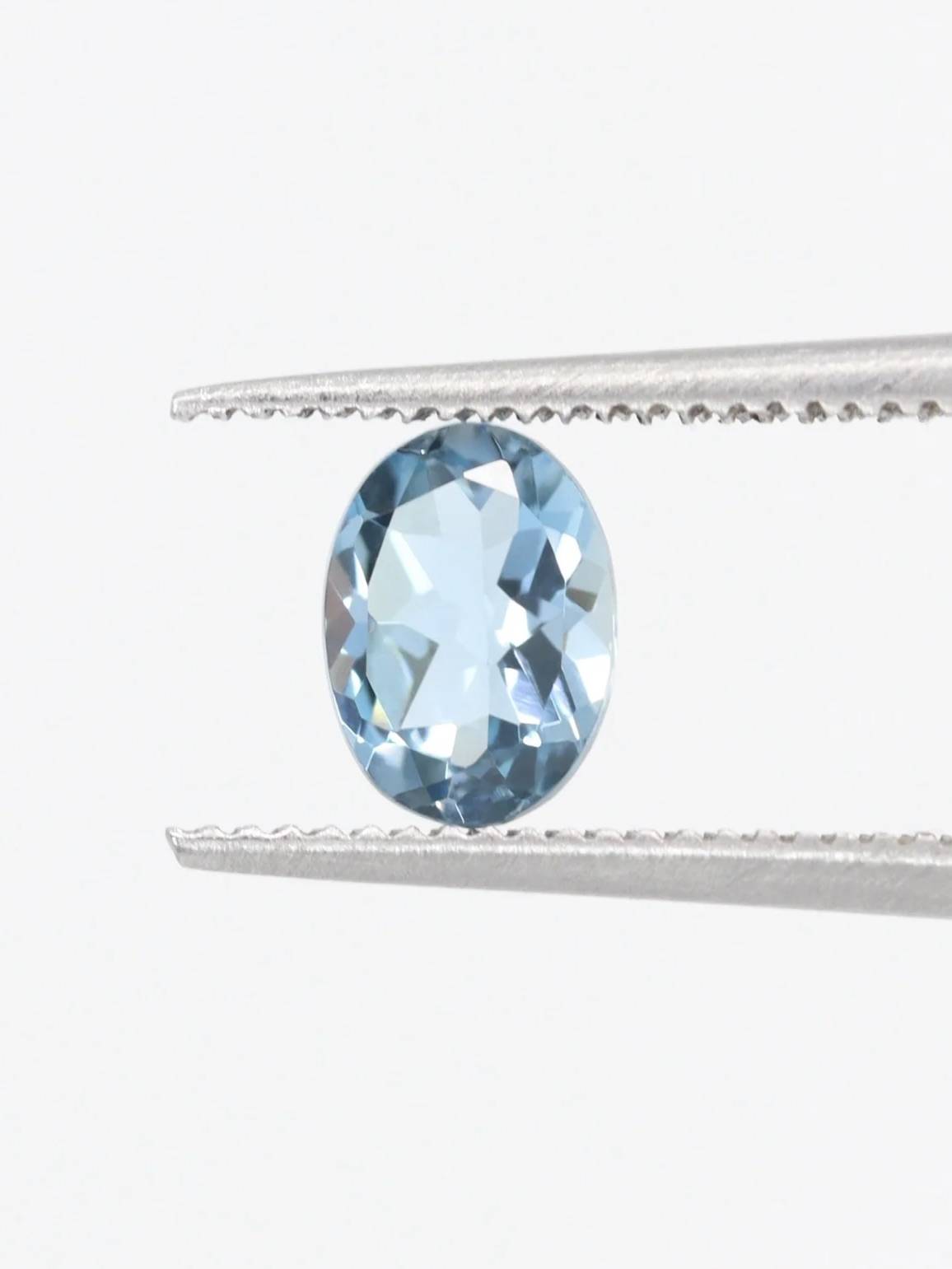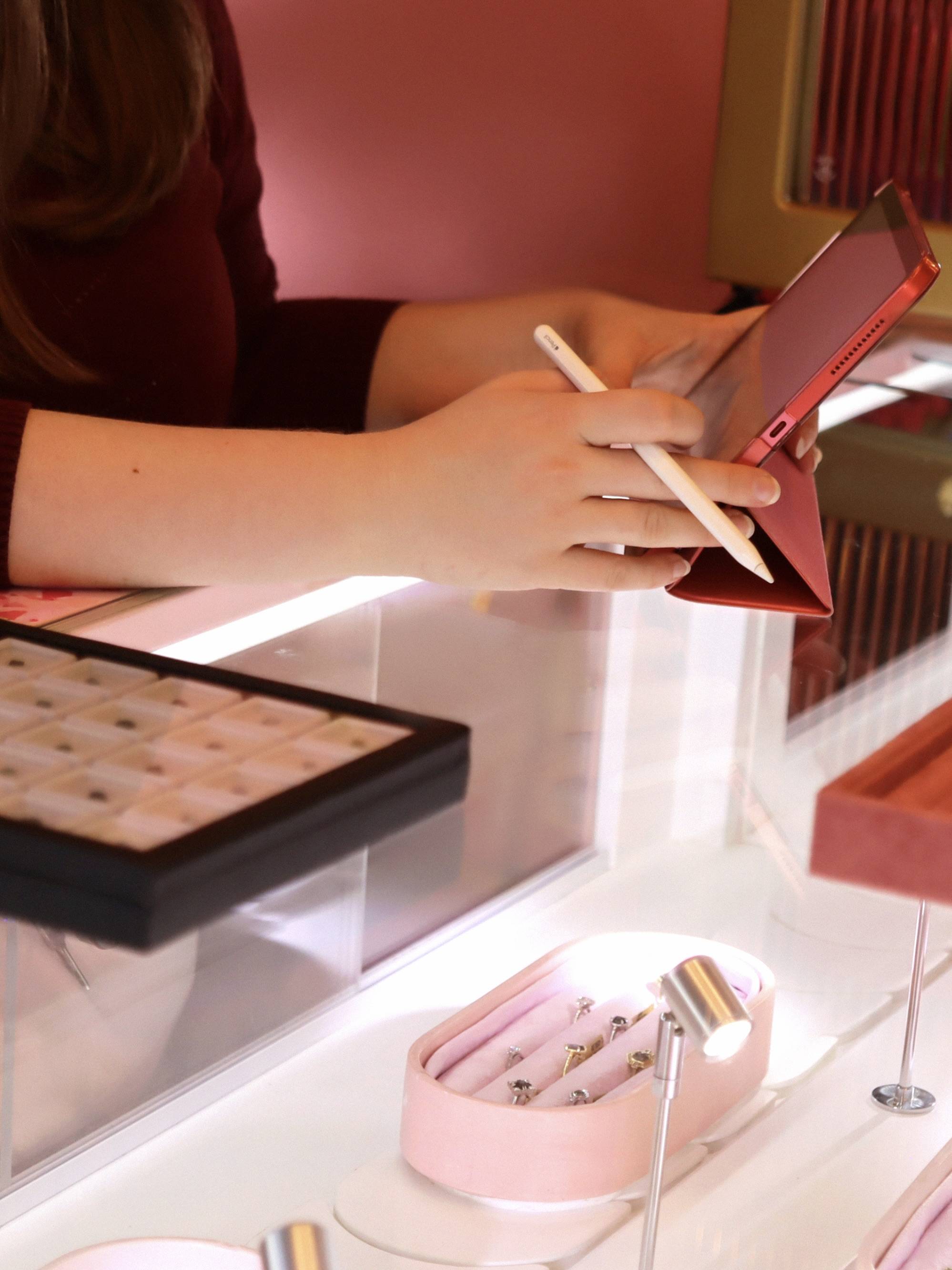GEMSTONE GUIDES
Aquamarine Gemstone Guide

Reflecting the splendour of the ocean, aquamarine is a stunning gemstone with a rich history. In this guide we will explore the beauty, history, properties, and uses of aquamarine, a gemstone renowned for its mesmerising blue. Aquamarine has captivated the world for centuries, earning its place as a cherished treasure in the realm of gemstones.
What is aquamarine?
Aquamarine is a captivating gemstone known for its serene blue colour reminiscent of the clear waters of the sea. Belonging to the beryl mineral family, aquamarine is a gemstone that is widely loved for its distinct blue colouring and ocean like sparkle. Ranging in shades from pale sky blue to deep ocean blue, aquamarine is prized for its clarity, transparency, and brilliance.
Aquamarine meaning
Aquamarine is cherished for its calming energy and is often associated with qualities such as tranquility, clarity of mind, and emotional balance. Aquamarine also has a rich history, with ancient civilisations believing it to be a talisman for sailors, offering protection and ensuring safe voyages across the sea.
Aquamarine is also the birthstone for March, and with its symbolism of youth and health, it's a perfect emblem for the springtime month.
Browse Aquamarine collection
Browse our collection of aquamarine engagement rings and loose gemstones. And if you don't find what you're looking for then just reach out to our design team who can collaborate with you to create your very own aquamarine dream.

aquamarine value
As with any gemstone, an aquamarine's value can depend on the 4 C's, colour, clarity, carat and cut. More often than not, the price of an aquamarine is higher the deeper and more saturated blue colour that it holds, especially if they have exceptional clarity and brilliance. Larger gemstones with a higher carat weight are also often more valuable. Another factor that contributes to an aquamarines value is its cut, stones that are cut to a higher quality will have more brilliance and sparkle, meaning they command a higher price.
Overall, when compared to gemstones like diamonds, rubies, and sapphires, aquamarine is generally considered a more budget-friendly option!

Aquamarine hardness
Aquamarine, ranging from 7.5 to 8 on the Mohs scale of hardness, ranks among the tougher gemstones, making it an ideal choice for daily wear. Its robust hardness ensures resistance against scratches and abrasions, making aquamarine jewellery durable and long-lasting. However, while aquamarine is suitable for everyday use, it's crucial to handle your jewellery with care and avoid wearing it during activities such as exercise, showering, or cleaning to prevent potential damage and maintain its beauty for years to come.

Aquamarine rarity
Aquamarine is more common than gemstones such as sapphires and diamonds, meaning it has a lower price point than its rarer counterparts. But, if you're looking for a natural aquamarine that has exceptional clarity, vivid colour and larger size, you could struggle. Despite its availability, the rarity of top-quality aquamarines with desirable characteristics adds to their allure and value.
Aquamarine is classified as a semi-precious gemstone rather than a precious stone. In the traditional gemstone hierarchy, precious gemstones include diamonds, rubies, sapphires, and emeralds, while semi-precious gemstones encompass a wide range of other gemstones, including aquamarine.
However, it's important to note that the classification of gemstones as "precious" or "semi-precious" is more of a historical and cultural distinction rather than a reflection of their inherent value or beauty. Aquamarine is highly valued and cherished for its stunning blue colour and clarity, making it a sought-after gemstone in its own right.
Lab grown aquamarine
Lab grown aquamarine, also known as synthetic or cultured aquamarine, is created in laboratories using advanced techniques that replicate the natural formation process of aquamarine. Synthetic aquamarine holds the exact same chemical and visual characteristics as mined aquamarine.
Lab grown aquamarine also gives the assurance of consistent quality, larger sized gemstones, control over colour and saturation and also ensures a reduced environmental impact compared to traditional mining methods. Lab grown gemstones are also a more ethical choice as they eliminate the possible social issues associated with mining. Read our Ethical Pledge to find out more about how we operate on an ethical level.
Where does aquamarine come from?
Natural aquamarines are sourced from various regions worldwide, including Brazil, Colombia, Pakistan, Madagascar, and Nigeria, each offering gemstones with distinct qualities. Brazilian aquamarines are celebrated for their deep blue hues and remarkable clarity, whereas Madagascar is renowned for producing stones ranging from pale blues to those with greenish hues. Aquamarines from Zambia, the United States, and Russia also contribute to this global supply, each with unique characteristics that enrich the diverse spectrum of aquamarines available on the market.
Aquamarine Colours
Aquamarine is renowned for its diverse range of blue hues, spanning from soft, cloudy tones to deep, oceanic blues. It can also exhibit hints of green and teal, with variations in colour intensity and the presence of inclusions contributing to the wide spectrum of aquamarine shades available. These unique characteristics make aquamarine a versatile and captivating gemstone, cherished for its natural beauty and distinct colour variations.

Caring for your aquamarine
Book an Appointment
At Jessica Flinn, we pride ourselves on creating a friendly atmosphere where all are welcome. If you book an in person appointment with us you will be welcomed into our beautiful showroom with a beverage of your choice, whether its a cup of coffee or a glass of champagne, we're here to make your appointment as memorable as possible. One of our experts will then guide you through the ring choosing or designing journey and make sure you leave with a ring you absolutely adore!
Book an appointment today and start your journey.







